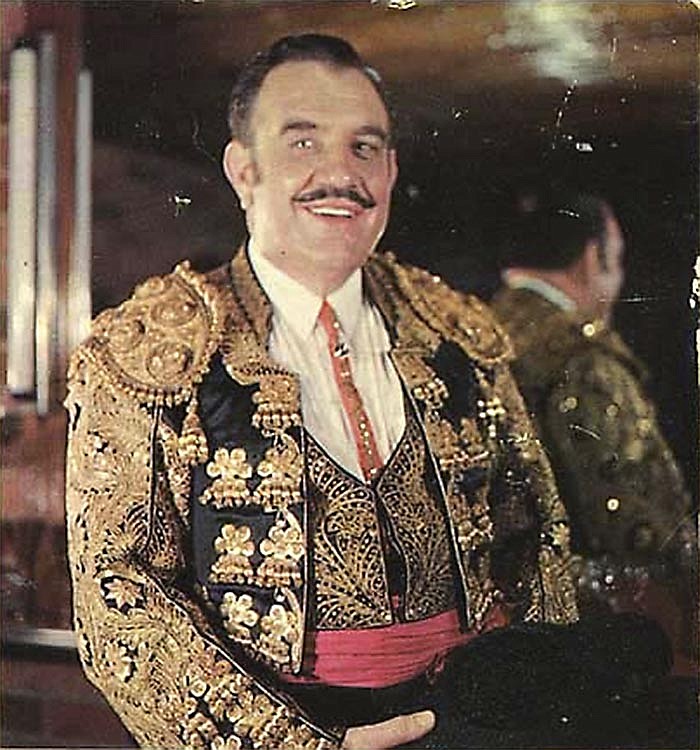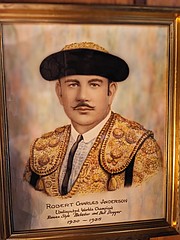I received an email last weekend from the granddaughter of a man named R.C. "Doc" Anderson, an astrologer and prophet who practiced here in the mid-20th century and died in floodwaters in 1980 while trying to get to his office in St. Elmo.
A couple of weeks ago, I wrote a short "Remember When, Chattanooga?" article about an archive photograph featuring Anderson's mobile office — a converted train car — that he set up at different locations to give readings to his customers.
Anderson's granddaughter, Frances Rinehart, of Chattanooga, reached out to let me know that she, and other family members, were not pleased with the "Remember When?" article. Actually, "not pleased" is my euphemism for Rinehart's word, which was "horrified."
In trying to define "Doc" Anderson by a few newspaper articles from the 1940s and 1950s, the story painted him as a controversial figure. I have since learned that he was much more than that, and I regret that the previous article was not more complete.
"Doc" Anderson was a celebrity, a confidant to Hollywood stars and a larger-than-life figure. To many he was a heroic character.
"He was genuine," Rinehart said in her email. "He gave as much, if not more, than he received. His 'gift' almost did him in when he was younger until he accepted it for what it was."
The family's response was a good lesson for me in perseverance — yes, at 65 I'm still learning life lessons. I should have done a better job researching "Doc" Anderson. Forebears are important, and their legacies are part of our own life stories.
I don't know much about my own grandfathers. Both died before I was old enough to have opinions about them. My paternal grandfather was a school principal who had a college degree back in the 1930s, when higher education was still fairly rare in the South. My maternal grandfather owned a country store in Maury County, Tennessee. I have a painting of the store in my house. I like to think of them as good, honorable men, and I hope to meet them one day if I make it to heaven.
What other people might have seen as an unconventional profession, "Doc" Anderson's family saw as a gift of prophecy that often helped people navigate their lives.
Rinehart explained: "As an example of how real his gift was ... would be when we were all sitting at Nannie's and Pop's having dinner. The phone rang ... and Pop (took the call) at the table. He said, 'Hi, Eddie.' Then there was some talking on the other side. Then Pop said, 'You need to do that, Eddie. It may not be your cup of tea, but it will get you back in the limelight.' Then he hung up. Turns out, it was Eddie Albert asking Pop his opinion about a television show called 'Green Acres.'" ("Green Acres" was a highly-rated TV series that aired from 1965 to 1971.)
Anderson counted among his friends and clients a long list of well-known Americans. A 2016 local history article for the Times Free Press written by Chattanooga attorney Jerry Summers listed a few. "Doris Day, Vincent Price, Denver Pyle, George Raft, Burl Ives, Clint Walker, Charlton Heston and Eddie Albert all valued Doc's predictions about their lives," Summers wrote.
(Read more: Jerry Summers, Lion of the law.)
Summers' article says Robert Charles "Doc" Anderson was born in Enterprise, Iowa, in 1908. "His early life included stints as an amateur prizefighter, bullfighter, carnival worker and circus strongman," the attorney wrote.
(Read More: R.C. "Doc" Anderson, Rossville's psychic)
Anderson also achieved some celebrity for a remarkable string of predictions during the 1940s. Among them that FDR would not live out his final term and that the war in the Pacific would end when the United States deployed a powerful new weapon on Japan.
When he died in floodwaters in 1980, it took three days to recover his body, according to his granddaughter. Family members said he was afraid of water and may have even had a premonition that he would die by drowning.
"He was a good man," Rinehart wrote. "... He was loved by so many people. And he continued to be loved to his dying day."
Contact Mark Kennedy at mkennedy@timesfreepress.com or 423-757-6645.

